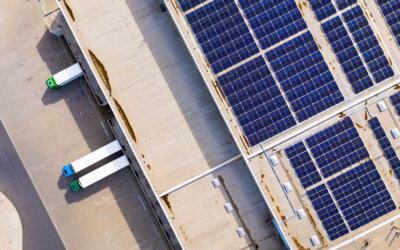The average family contributes about 48,000 pounds of carbon pollution to global warming every year. It seems staggering, which can make counterbalancing that impact can seem like an impossible task.
Yet, a shift in mindset and a few small changes can make a big difference in the reduction of carbon emissions and your household carbon footprint.
Here are my top tips for reducing your family’s environmental footprint — during Earth Week and all year round.
In the Kitchen
We put Mother Nature on our plate three times a day so the choices you make about what food to buy, how often and from where has a direct impact on the planet.
Livestock puts more greenhouse gases into our atmosphere than all forms of transportation combined, so going meatless – even just one day a week – is a positive way to help fight global warming.
Wherever possible, choose grass-fed beef, because a diet of grass is much easier on the cow’s digestion and reduces flatulence.
This is a great time of year to discover farmer’s markets, where you can meet local farmers and learn more about how livestock is raised and what farm-friendly food share programs are available in your area.
At the grocery store, stick to the perimeter, which is where you’ll find the fresh, non-processed foods. The stuff in the middle – the crackers and cookies and canned goods – are shipped a long way to your store and rely on a lot of packaging to keep them fresh.
In Our Community
What we drive and how far, together with how we heat/cool our homes make up our biggest contributions to greenhouse gas emissions.
We can walk or bike instead of drive when possible – I ride my bike for trips under 10 kilometres (when weather permits). As a result, my hybrid car stays put more and I’m in far better shape. I barely go to the gym in the spring and summer.
We all owe it to the planet to get the most out of every drop of gasoline we use. Ensure that your tires are inflated properly to boost fuel economy by 3%; and use the recommended grade of motor oil to improve fuel economy by 1 to 2%. Keep your engine tuned for a 4% improvement in fuel economy and regularly replace air filters for 10% boost in fuel economy.
But for those emissions we simply can’t eliminate, personal carbon offsets are a great way to help balance out the impact that our work commute, weekend drives to the cottage, or heating/cooling our homes has on the environment.
Carbon offsets are an financial tool to help build emission reduction and renewable energy projects across North America – including wind and solar power projects and advanced methane gas capture technologies that help mitigate the impact of landfills. You can read more about how it works here.
It’s important to buy from a reputable company, such as Terrapass, that operates according to strict standards and retires and registers offsets in a transparent way.
At Home
At home, energy conservation is the key goal, so think of the planet and turn your thermostat up in the summer and down in the winter by just a degree or two to make a major reduction in energy use.
Just a 1 degree change for more than eight hours at a time reduces your energy bill by 1%.
Energy efficient appliances can cut your energy bill by up to whopping 60% and washing in cold water will save you another 10% on your bill. Good for the planet, good for your wallet.
Remember the 3Rs: Reduce, Reuse, Recycle – in that order!
And to go totally carbon neutral, look for carbon offsets.
Brought to you by terrapass.com








